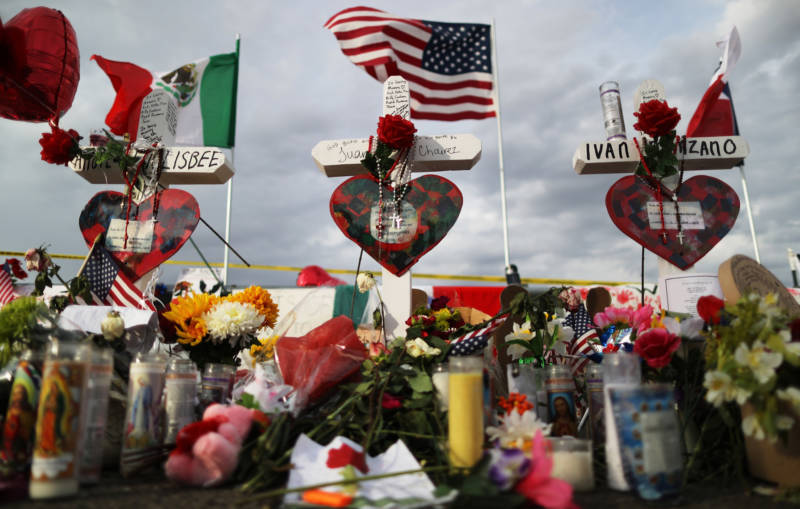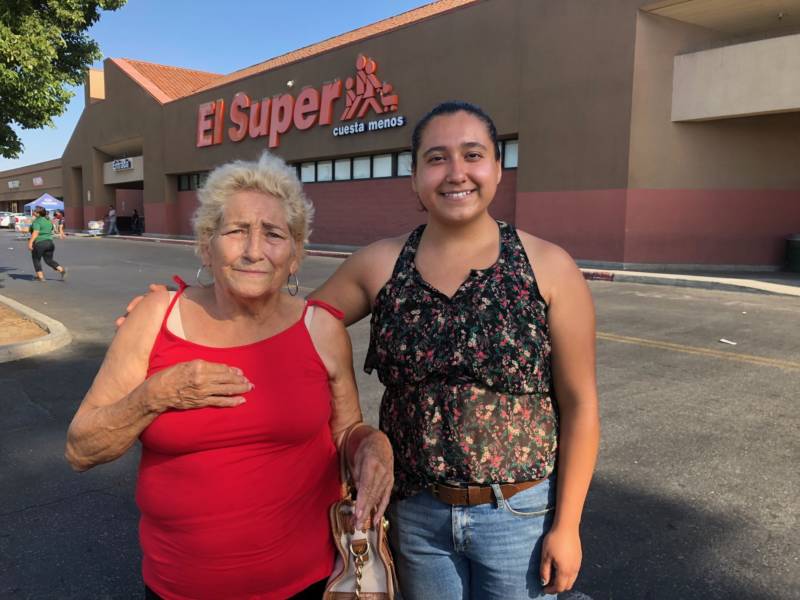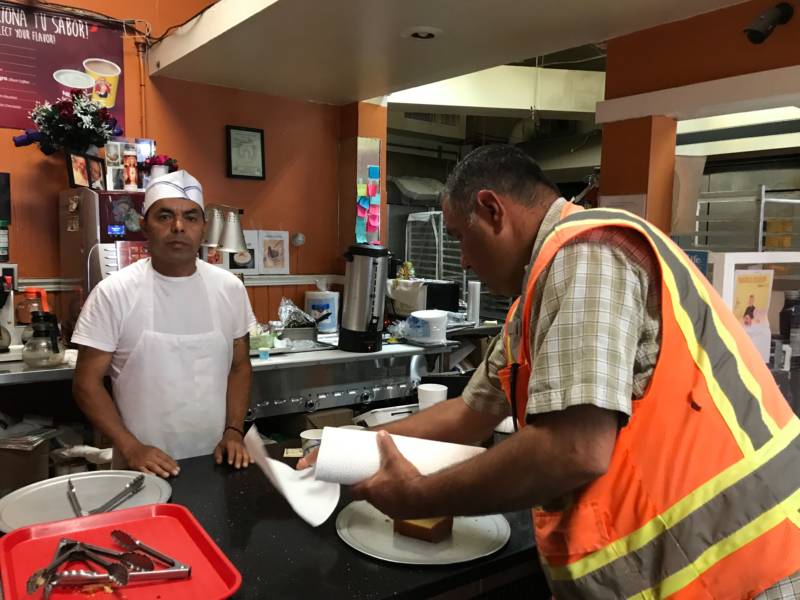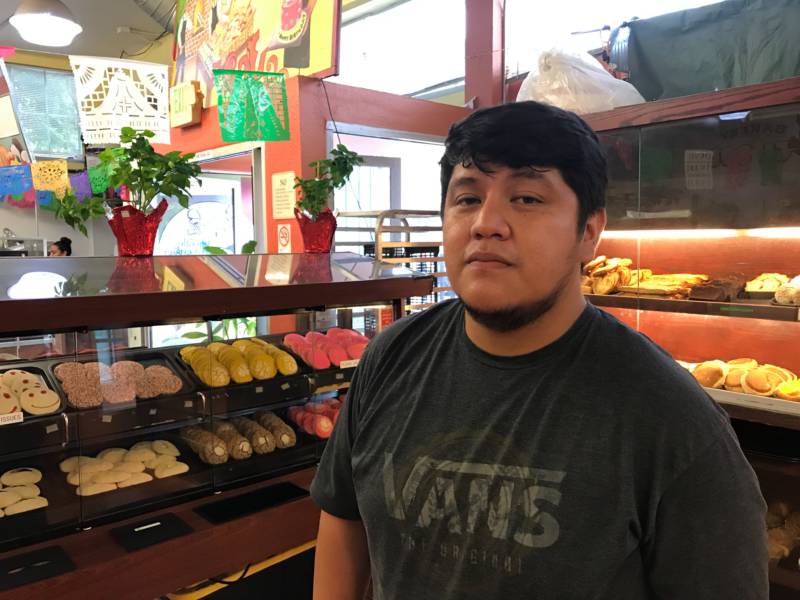After the mass shooting at a Walmart in El Paso, Texas, where the gunman told authorities he was targeting Mexicans, some Latinos in California said they feared for their safety and denounced racial hate fueling such violence.
'An Attack on All of Us’: El Paso Shooting Targeting Latinos Stirs Fear in California Communities

Elizabet Reyes, a mother of five who works in the fields outside of Fresno, said she has been scared since the Aug. 3 shooting in El Paso, the deadliest anti-Latino attack in modern American history, where 22 people were killed and about two dozen were injured.
“We’re trying not to go out much, as little as possible, because we don’t know what could happen,” Reyes said last Wednesday.
Authorities say the El Paso gunman targeted Mexican and Mexican American workers and shoppers — most of the dead had Hispanic last names and eight were Mexican nationals. They said he also wrote in a racist manifesto that he was carrying out the attack in “response to the Hispanic invasion of Texas,” The New York Times reported.
Reyes’ oldest daughters watch the news and follow social media. She said they ask her why people are against them.
“I tell them it’s racism. It’s racial hate, what’s happening,” she said, adding she tells them “not to internalize it, as if we’re bad people. Because we are not.”

Manuela Calva, who was with her granddaughter, Evelyn Gonzalez, in the parking lot of El Super parking lot — a grocery store in central Fresno, said she had been watching news coverage of the shooting.
“We are worried," Calva said. "Because you don’t know if someone could attack us where there are a lot of people. Like in the mall, right? There is a feeling of insecurity. ... And the kids, the schools, everything. We’re worried.”
Calva’s granddaughter, Evelyn Gonzalez, said: “It’s an attack on all of us.
“Not just the victims, but rather all Latinos, not just Mexicans,” she added. “And also all of the people who love us who are not Mexican.”
Some people have contemplated getting a gun for safety, like Maira Sosa.
“The person who has a gun, nothing happens to them," said Sosa, who was shopping with her daughter at El Super. "But they’re safe because they have one. Is the other person not safe because he does not have a gun? You don’t know whether to ask for there to be more guns, or no guns at all.”
Still, Sosa doesn’t think having a gun is a realistic solution and worried about the example it would set for her kids.

Similar concerns and fears were found among residents of Oakland's Fruitvale neighborhood, a community that is about 50% Latino.
Miguel Ángel Casillas, owner of Delicias Bakery, has seen the impact on the community: “People are frightened.”
"(The El Paso and Gilroy mass shootings) changed our way of thinking. Going to the mall, grocery shopping — you have to think about it twice. You won't go to a place where you can maybe die," he said.
When asked how he has coped with the attacks and if he has taken the time to lift his spirits, he said his family now avoids such public places.

The current sentiment of Latinos in the Bay Area can depend on people's identity and relationship with their heritage.
Placing pan dulce at the glass display of the bakery where he works, David Juarez said that because he was born in the U.S., the attacks did not feel as personal. His parents, who are now citizens, felt it was a direct threat.
Juarez said racism has always been around, but things have changed.
"This president does not condemn racism, so people do whatever [violent thing] they want," he said.
Since the last presidential election, Latinos have been projected to have a greater say in politics. This idea helps to keep Juarez optimistic about the future.
"You have to vote, or else you're not doing much," he said.
